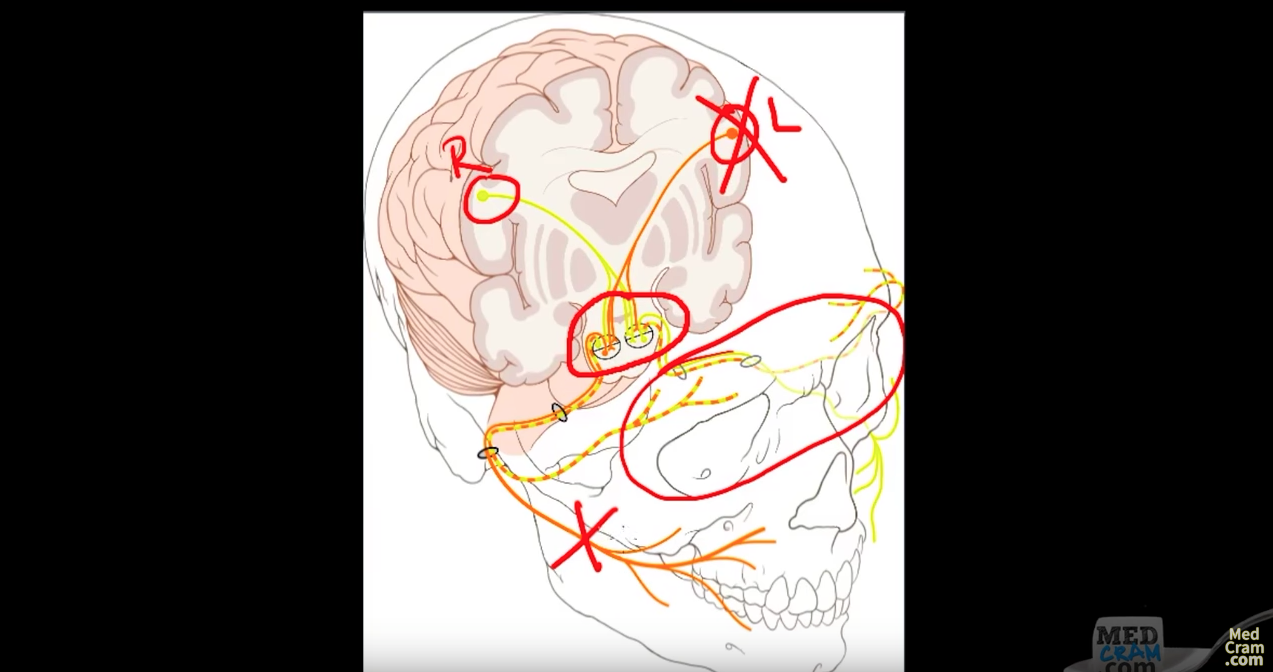Today’s MedCram Monday comes from the BoardVitals Family Medicine Board Practice Question bank. If you’re preparing for your Family Medicine Board Exam, you know that the test covers a variety of topics you are expected to master. One of these topics, Bell’s Palsy is one topic you’ll likely find on the exam. One of our questions has peaked confusions with a few users. We turned to Dr. Roger Seheult to help explain the question. Like always, with any BoardVitals question, you get a detailed explanation of all correct and incorrect answers, which helps you get a mini-lecture and comprehensive understanding of the topic covered in the question. Feel free to reach out if this doesn’t seem sufficient and we’ll work to get you the information you need! This video will help you master Bell’s Palsy and remain confident for your exam.
The Question:
A 55-year-old male presents to the ER with left-sided facial droop. His symptoms started 5 hours ago at work and were noticed by his co-workers. The patient has an elevated BP at 170/101. He does not take any BP medicines. He reports excessive stress due to illness in the family. He also has had a headache for 2 weeks, which mostly subsides after a good night of sleep. He was sick with flu-like symptoms 2 weeks ago. What is the best test for determining the cause of his facial droop?
A. Ask patient to frown and wrinkle his forehead
B. Send patient for CT scan of head
C. Obtain serology for flu infection
D. Give clonidine to lower blood pressure
E. Obtain nerve-conduction test for 7th nerve
ANSWER: A.
EXPLANATIONS: A. TRUE: This patient has Bell’s palsy, which is an isolated unilateral lower motor neuron lesion of the 7th nerve. This palsy causes paralysis of the entire half of the face as opposed to an upper motor neuron lesion, which spares the upper part of the face. In an upper motor neuron lesion, the patient can wrinkle his or her forehead. B. FALSE: An upper motor neuron lesion will require CT scan of the head, but if the patient can’t frown, this test is not necessary. C. FALSE: Flu infection does not cause 7th nerve paralysis. D. FALSE: Although his blood pressure should be managed, it is not causing his facial-droop symptoms. Lowering blood pressure will not relieve symptoms. E. FALSE: A nerve-conduction test is unnecessary.
B. FALSE: An upper motor neuron lesion will require CT scan of the head, but if the patient can’t frown, this test is not necessary. C. FALSE: Flu infection does not cause 7th nerve paralysis. D. FALSE: Although his blood pressure should be managed, it is not causing his facial-droop symptoms. Lowering blood pressure will not relieve symptoms. E. FALSE: A nerve-conduction test is unnecessary.
C. FALSE: Flu infection does not cause 7th nerve paralysis.
D. FALSE: Although his blood pressure should be managed, it is not causing his facial-droop symptoms. Lowering blood pressure will not relieve symptoms.
E. FALSE: A nerve-conduction test is unnecessary.
The Family Medicine Certification Exam is administered over the course of 9 hours. It is divided into four 80 multiple-choice question sections.
The categories are broken down as follows, according to ABFM:
- Cardiovascular 10%
- Endocrine 7%
- Gastrointestinal 6%
- Hematologic/Immune 3%
- Integumentary 5%
- Musculoskeletal 10%
- Nephrologic 3%
- Neurologic 3%
- Nonspecific 8%
- Psychogenic 6%
- Reproductive—Female 3%
- Reproductive—Male 1%
- Respiratory 11%
- Special Sensory 2%
- Population-based Care 4%
- Patient-based Systems 4%
- Module (Selected from eight possible choices at the time of the examination) 13%
Want more practice questions? The BoardVitals Family Medicine Question Bank has more than 2400 questions written and reviewed by physicians who have recently taken the Family Medicine Exam. Not ready to commit? Start with a free trial.




